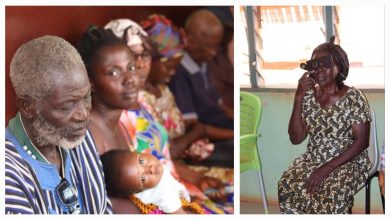Religious, Societal Beliefs Behind Contraceptive Uses Causing Unsafe Abortion – National Population Council

|
Getting your Trinity Audio player ready...
|
The National Population Council (NPC) said religious and Socio-cultural beliefs about the use of contraceptive is causing highly increasing unsafe abortion.
The NPC has therefore pleaded with Parliament to pass the long-awaited bill to “put Family Planning on the National Health Insurance Scheme (NHIS)” to motivate and increase the use of contraceptives among married and unmarried sexually active women for the controlling, spacing and limiting of pregnancies.
Mr. Davis Yeboah Aboagye, the Bono Regional Officer of the NPC said religious and socio-cultural beliefs, low economic status, low level of education and perceived side effects of contraceptives were barriers and causes of low uptake of contraceptives which was as a result of increasing unwanted pregnancies and unsafe abortion in Ghana.
Speaking in an interview with the media in Sunyani, he stated that family planning is one of the vital factors of population management which is a pivotal effort to national development, but worried “the Bill to include family planning in the NHIS remain in Parliament since 2011 waiting until God knows when to be passed”.
“It’s a vision for controlling the number of children one would want to have and the interval between their birth including timing so that every pregnancy is wanted and decisive happening”, he added.
Mr. Aboagye stated women empowerment and gender equality are also necessary for societies to advance, therefore “it is critically need for all stakeholders to join hands with the government in managing the country’s rapid population growth”.
He said the World Contraception Day (WCD) launched in 2017 and marked on September 26 every year focuses on creating awareness about contraceptive knowledge and family planning to enable young people to make informed choices on their sexual and reproductive health.
The Ghana government affirmed the family planning Programme of Action (PoA) to recognise reproductive health and rights as a foundation for development, hence the quest to achieve a 50 per cent contraceptive prevalence rate by 2034, Mr. Aboagye informed.
He added One of the objectives of the 2017 Revised National Population Policy is to increase the Contraceptive Prevalence Rate for modern methods among currently married women from 22 per cent in 2014 to 35 per cent in 2024 and to 50 per cent in 2034.






